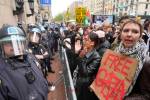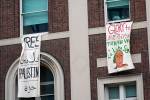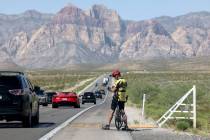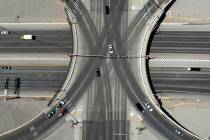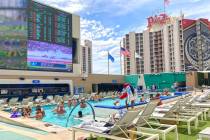Official rips report ranking Las Vegas as 2nd-most polluted metro


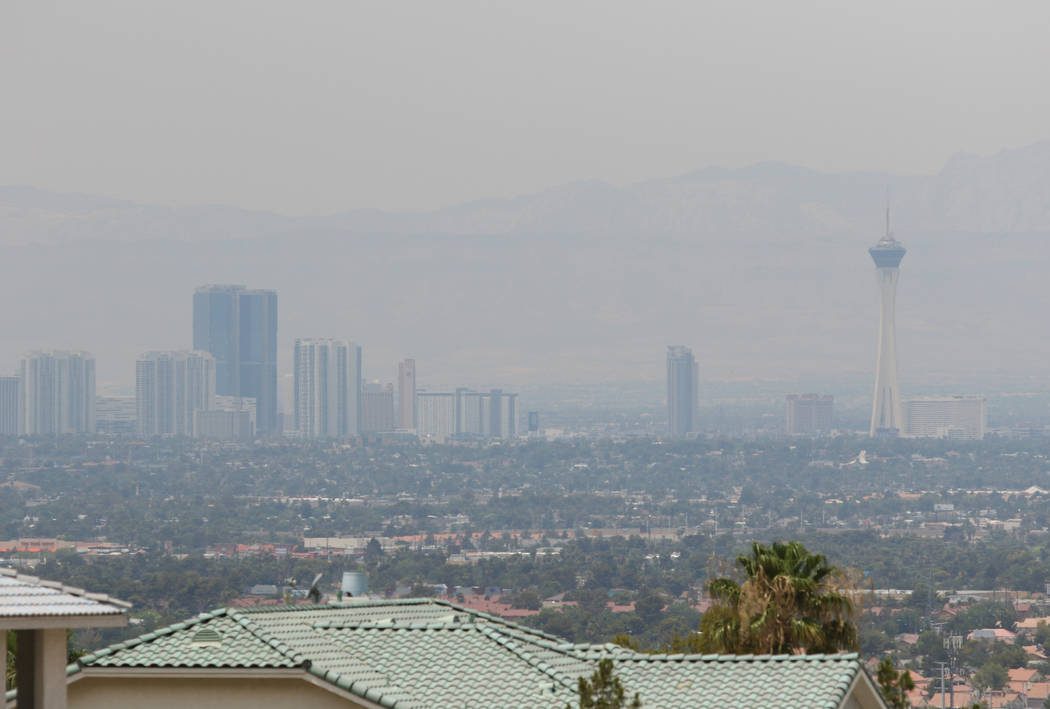
A new report identifies Las Vegas as having some of the most polluted air among U.S. metropolitan areas, but a local air quality official says the findings “scream of bias.”
The report published Wednesday by a trio of environmental and public research groups listed the valley as being second among the top 10 U.S. metropolitan areas in terms of “degraded air quality,” trailing only the Riverside, Ontario and San Bernardino region in California. It said both Las Vegas and Henderson saw 145 days of “damaging levels of air pollution” in 2016, attributable mainly to car emissions.
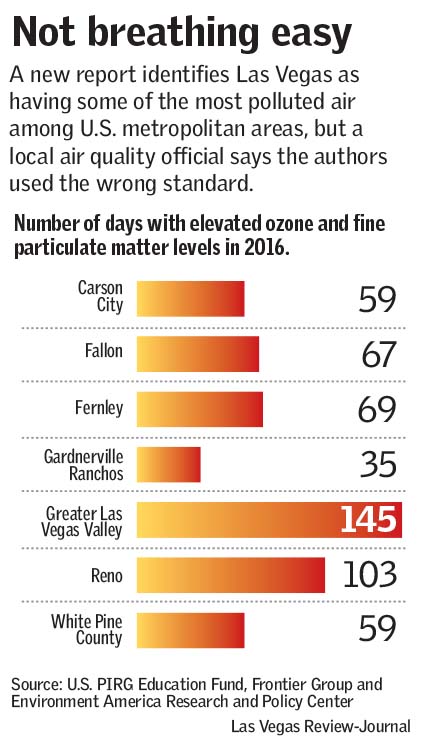
Click for a larger image
“That is more than four months of days with dirty air, which is too much air pollution,” said Christy Leavitt, coauthor of the report by the U.S. PIRG Education Fund, the Frontier Group and the Environment America Research and Policy Center. “We need to be getting to a point where we have much fewer dirty air days, and then, no dirty air days.”
But Mike Sword, manager of the Clark County Department of Air Quality Planning Division, challenged the findings. While the report counts all days that registered higher than 50 on the U.S. Environmental Protection Agency’s Air Quality Index as poor, the EPA considers index values of 51 to 100 to be moderate pollution levels that don’t pose a significant health risk, he said.
“This report screams of bias,” said Sword, a chemical engineer. “Based on that, I think that it needs some rigorous science principles and math principles applied to it.”
Using the EPA’s standard, the county measured 19 days in 2016 at or above an air quality index value of 101 — the point at which the federal agency says pollution levels are unhealthy for those with heart and lung conditions as well as older adults and children. It wasn’t clear whether that would still place the valley among the metros with the dirtiest air.
But the report’s results didn’t surprise Antony Chen, director of UNLV’s Urban Air Quality Laboratory.
He said the extremely high temperatures and abundance of sunlight during Southern Nevada summers create the perfect conditions for the creation of ozone, a gas that is a key component of smog. The gas reacts photochemically with “precursors” like vehicle and tailpipe emissions to create the potentially unhealthy haze in the air.
“Most of these precursors are probably generated by local sources, like local vehicles, and some may be transported from California,” Chen said.
The Los Angeles, Riverside and Sacramento metro areas in California also were ranked among the most polluted in the report.
Advocates of air pollution reduction argue that high levels of ozone and particulate matter put a strain on respiratory and cardiovascular health. Asthma can be a side effect of long term exposure to ozone, according to the report.
“Smog basically inflames the lungs,” Leavitt said. “It creates inflammation that’s similar to sunburn in the lungs, and that causes a variety of respiratory problems.”
The report comes as the EPA moves to review its ground-level ozone limit of 70 parts per billion, which was tightened in 2015 by the Obama administration, the Associated Press reported Tuesday. The ozone reading is one of five air pollutants used to calculate the air quality index value.
The agency is seeking public comment on the current standard’s impact on the economy and public health, the Associated Press reported.
Lowering the standard, Chen said, could incentivize technological innovation and investment in renewable energy.
Though Sword said Clark County’s ground-level ozone measurements exceed the limit, that doesn’t signal the area’s pollution is worsening, but rather that regulations are becoming more stringent.
“We like to refer to it as lowering the limbo bar,” Sword said. “Our air quality over the years has been stable and gradually improving.”
Contact Jessie Bekker at jbekker@reviewjournal.com or 702-380-4563. Follow @jessiebekks on Twitter.
Ozone warning extended
The Clark County Department of Air Quality extended an air quality warning issued Sunday through Wednesday due to hot weather conditions and lingering smoke from a weekend wildfire at Red Rock National Conservation Area.
The department advises residents to spend limited time outdoors, drive less and schedule outdoor activities for the morning or evening, when ozone levels are generally lower. The department also advises against strenuous activity, especially for those with respiratory conditions.
The department offers free email or text air quality forecasts through http://www.enviroflash.org/.







